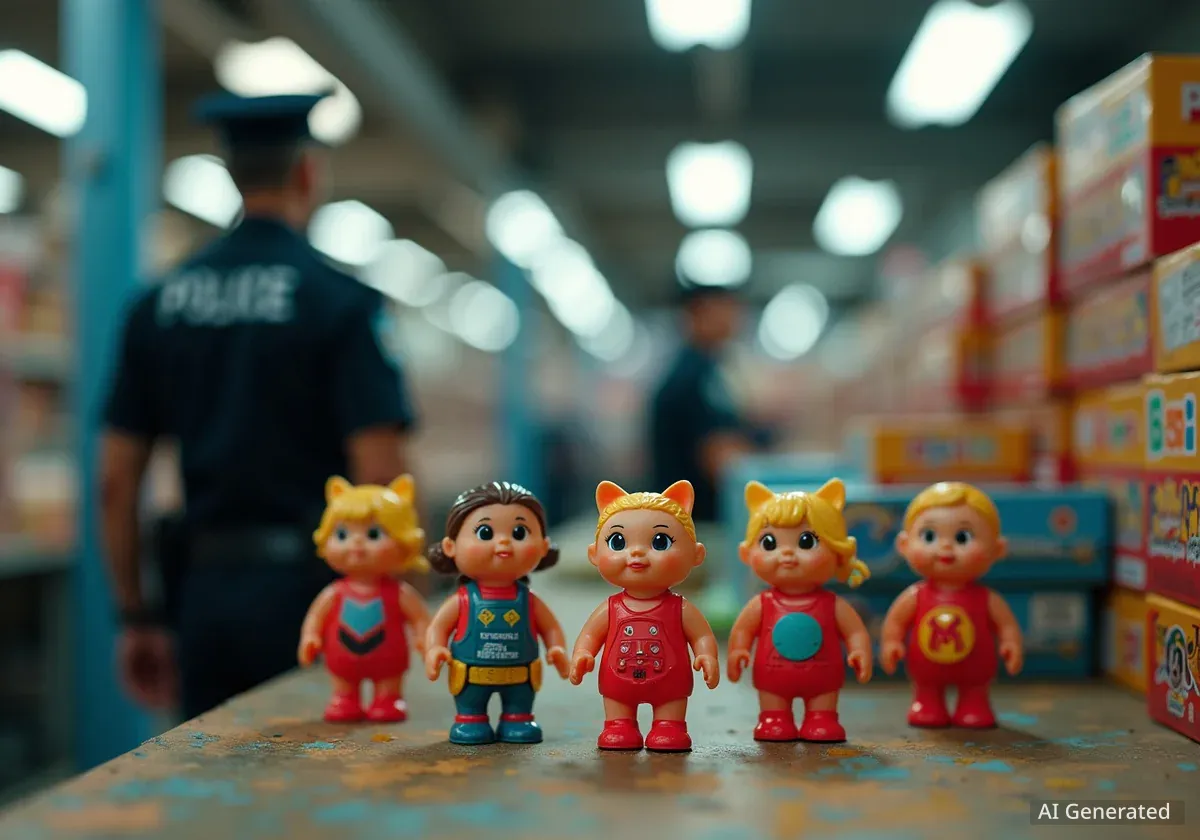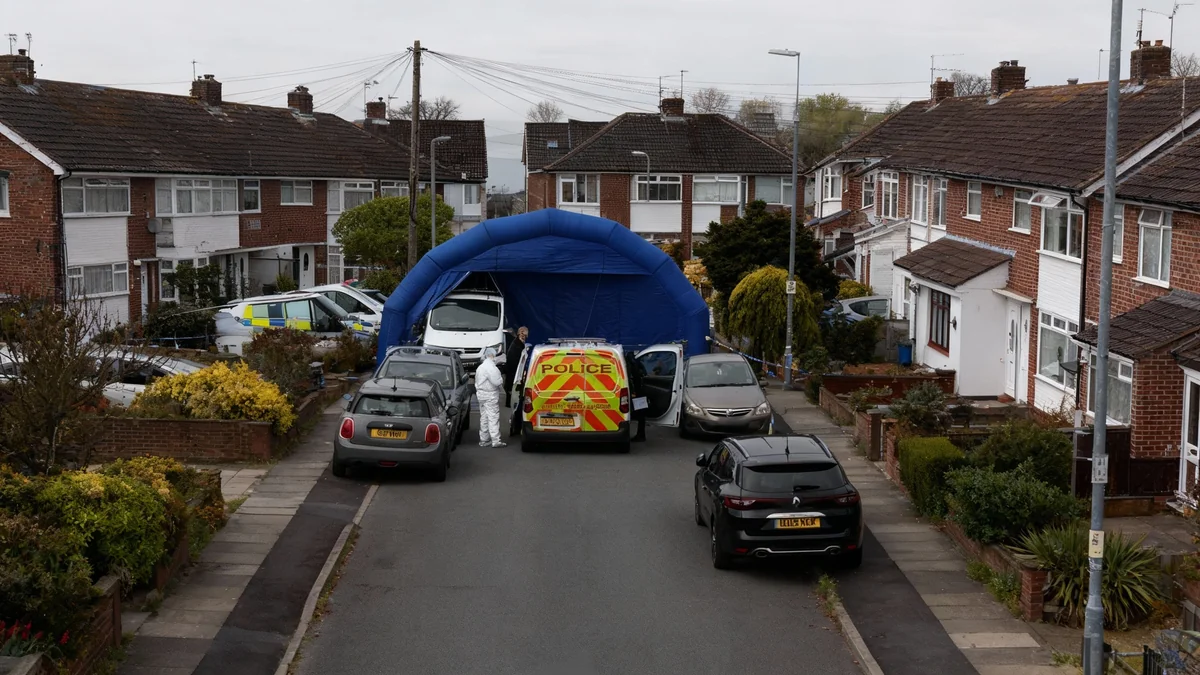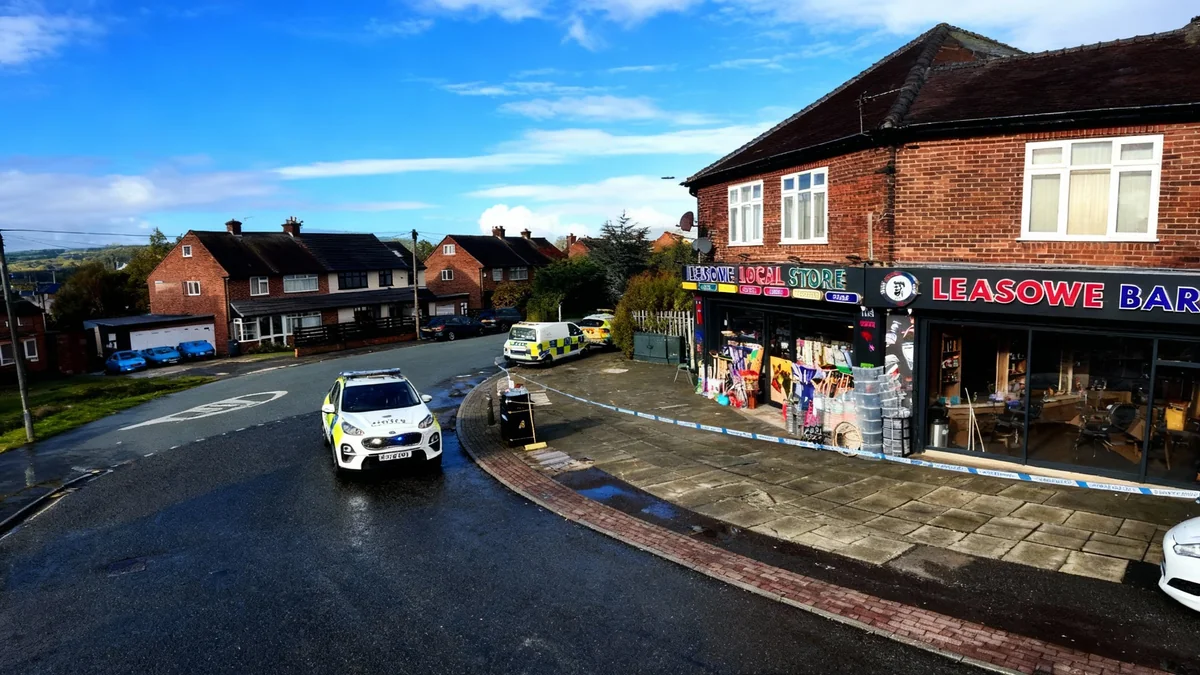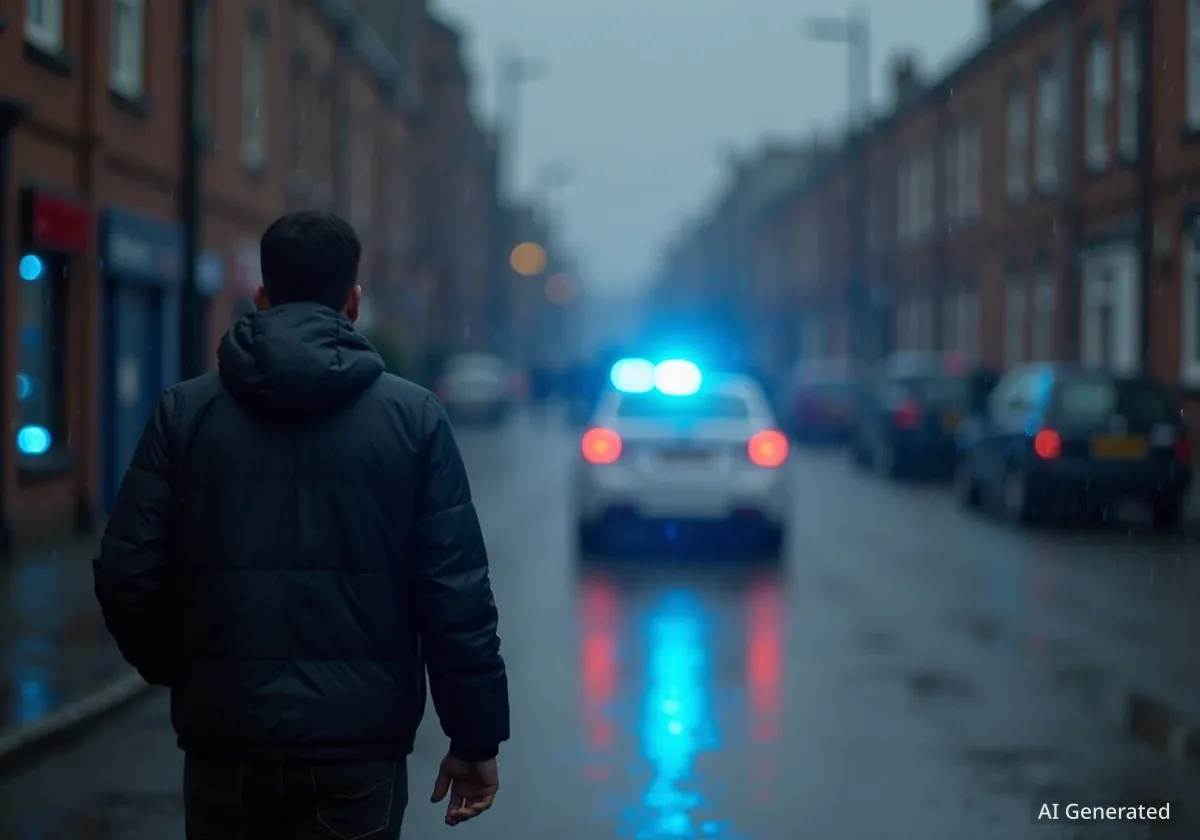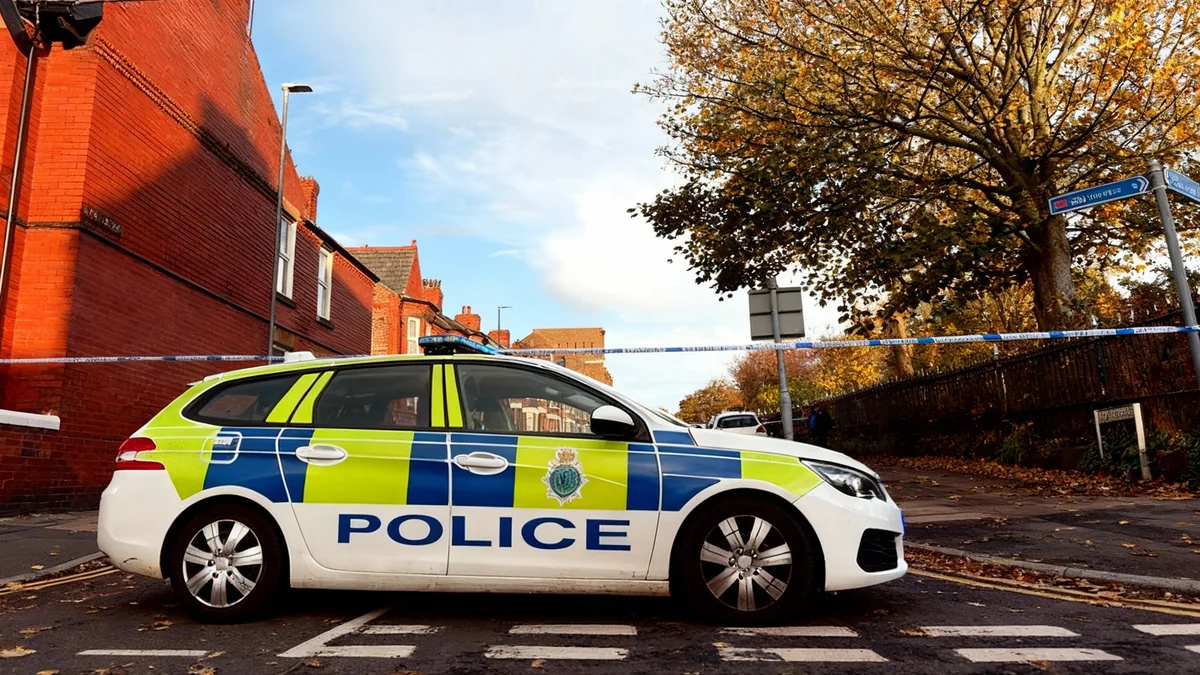Almost 100 counterfeit Labubu dolls have been seized in Liverpool as part of a joint operation. Merseyside Police and Trading Standards conducted enforcement visits at two city centre shops, uncovering the fake toys being sold for £7.99 each. This action highlights the ongoing effort to combat the sale of illicit goods and protect consumers.
Key Takeaways
- Merseyside Police and Trading Standards seized nearly 100 fake Labubu dolls.
- The dolls were found at two stores on Ranelagh Street and Church Street.
- Counterfeit toys pose serious safety risks, including toxic materials and choking hazards.
- The operation is part of Operation Scent, targeting various fraudulent products.
- Consumers are urged to check for safety marks and buy from trusted retailers.
Enforcement Action Targets Counterfeit Toys
On Tuesday, October 14, officers from Merseyside Police and Trading Standards visited two retail locations. These were situated on Ranelagh Street and Church Street, central shopping areas in Liverpool. Their inspections led to the discovery of numerous fake Labubu dolls.
During the visits, authorities found just under 100 counterfeit dolls. These items were being sold to the public at a price of £7.99 per doll. The seizure forms a key part of Merseyside Police’s broader initiative, known as Operation Scent.
What is Operation Scent?
Operation Scent is a Merseyside Police program. It specifically targets the distribution and sale of fraudulent perfumes and other types of counterfeit merchandise. The goal is to disrupt criminal networks involved in these illicit trades.
The Dangers of Counterfeit Toys
While fake toys might appear to be a good deal due to their lower price, they carry significant risks. These products often lack proper safety standards. They can pose serious dangers to children, including potential exposure to toxic substances.
Furthermore, the sale of counterfeit goods often helps fund organized criminal activities. Consumers who purchase these items unknowingly contribute to these wider criminal networks. This makes the issue more than just a matter of intellectual property infringement.
Liverpool City Centre Neighbourhood Sergeant Richard Clare stated, “We understand that some people may not see the harm in buying counterfeit toys, especially when they’re cheaper or appear similar to the real thing. But behind these fake products are serious risks – not just to children’s safety, but to our communities.”
Identifying Genuine Labubu Dolls
Genuine Labubu dolls are distinctive. They are known for their furry, monster-like appearance. These popular toys are produced by the Chinese toymaker Pop Mart. Their unique design makes them easily recognizable to fans.
In contrast, counterfeit versions frequently show obvious flaws. These can include twisted limbs, misshapen heads, or an incorrect number of teeth. Such defects are visual indicators of poor manufacturing quality.
Counterfeit Quality Concerns
- Toxic Paint: Fake toys may use paints containing harmful chemicals.
- Sharp Edges: Poor construction can result in dangerous sharp points.
- Unsafe Stuffing: Internal materials might be hazardous, containing toxins or sharp objects.
- Weak Construction: Parts can break or loosen easily, posing choking risks.
An inspection of a seized counterfeit Labubu doll revealed significant safety concerns. The item was poorly constructed. Its head and feet twisted and loosened with minimal effort. The internal stuffing also tore open easily, exposing potentially hazardous materials. These materials could include toxins or sharp objects, making the toy unsafe, especially for young children.
Consumer Alert Ahead of Festive Season
With Christmas approaching, many people begin shopping for gifts. Merseyside Police and Trading Standards are urging residents to be very careful when buying toys. This caution is crucial to avoid purchasing unsafe or fake products.
Before buying any toy, consumers should ask themselves key questions. For example, 'Does this shop typically sell toys?' This can help determine the legitimacy of the seller. Checking the quality of the packaging is also important.
Essential safety marks like the CE or UKCA symbol must be present on the packaging. These symbols indicate that the product meets European or UK safety standards. Packaging should also include clear warning labels and usage instructions. Absence of these details is a red flag.
Links to Wider Criminal Activity
Operations like the recent seizure in Liverpool often reveal a deeper issue. The trade in counterfeit goods is frequently connected to larger criminal networks. These networks are involved in a range of serious offences beyond simply selling fake products.
Sergeant Clare added, “Counterfeit and illicit goods are rarely just about fake products; they’re often linked to wider criminal networks that cause real harm in our communities. That’s why it’s vital we seize these items and thoroughly investigate those responsible.”
He emphasized the police's commitment to public safety. He urged everyone to reconsider buying counterfeit items, particularly with the festive season near. A cheap bargain could inadvertently fund serious crime and put lives at risk.
National Campaign: Fake Toys, Real Harms
This local enforcement action coincides with a national initiative. The Intellectual Property Office (IPO) has launched the “Fake Toys, Real Harms” campaign. This campaign aims to educate consumers about the significant health and safety dangers posed by counterfeit toys.
The campaign highlights various risks. These include the presence of banned chemicals linked to cancer, dangerous choking hazards, and unsafe construction. These risks are particularly concerning in products marketed to toddlers and infants.
National Counterfeit Toy Statistics
- Since the start of 2025, over 200,000 counterfeit Labubu dolls have been seized in the UK.
- These seizures account for approximately 90% of all counterfeit toys confiscated this year.
- The estimated value of these seized items is nearly £3.3 million.
- Shockingly, 75% of all counterfeit toys seized failed critical safety tests.
Councillor Harry Doyle, Liverpool City Council’s Cabinet Member for Health, Wellbeing and Culture, expressed his support. He stated, “Counterfeit toys can be dangerous and misleading, especially when they’re aimed at children. I’m pleased to see our Trading Standards team work in partnership with Merseyside Police to crackdown on the sale of these goods to protect shoppers and raise awareness ahead of the festive season.”
Tips for Avoiding Counterfeit Toys
Consumers can take several steps to avoid purchasing fake or unsafe toys. Being informed and vigilant is the best defence against these dangerous products.
Before You Buy
- Trusted Retailers: Always buy from reputable stores or official brand websites. Be cautious when using third-party sellers on online marketplaces.
- Check Reviews: Read customer reviews carefully. Look beyond only positive feedback and pay attention to any negative comments about product quality or authenticity.
- Price Check: Be wary of prices that seem too low. If a deal appears 'too good to be true,' it often is. Counterfeit items are typically sold at significantly reduced prices.
- Product Recalls: Before purchasing, quickly search online to ensure the toy has not been recalled due to safety issues. Use the brand and product name in your search.
When the Toy Arrives
- Safety Marks: Look for the UKCA or CE safety mark on the packaging. Also, check for a UK contact address, which indicates a responsible person or company within the UK.
- Packaging Quality: Examine the packaging. It should look professional, with clear printing and no spelling errors. Ensure it includes appropriate age warnings and usage instructions.
- Inspect the Toy: Carefully inspect the toy itself. Check for any loose small parts, exposed stuffing, or unsecured batteries. These can all be choking hazards or indicate poor manufacturing.
If You Spot a Counterfeit or Unsafe Toy
- Do Not Use: If you suspect a toy is counterfeit or unsafe, do not give it to a child.
- Return Immediately: Return the item to the seller as soon as possible.
- Warn Others: Leave a review on the platform or store website to warn other potential buyers.
- Report the Seller: Report the seller to the platform where you made the purchase.
- Contact Trading Standards: Notify Trading Standards. This helps authorities prevent dangerous toys from reaching other families and supports ongoing enforcement efforts.
